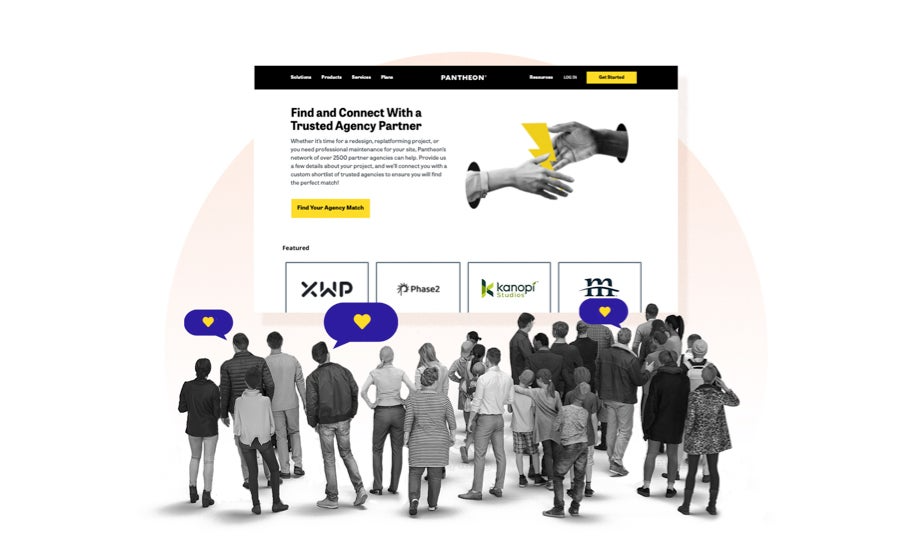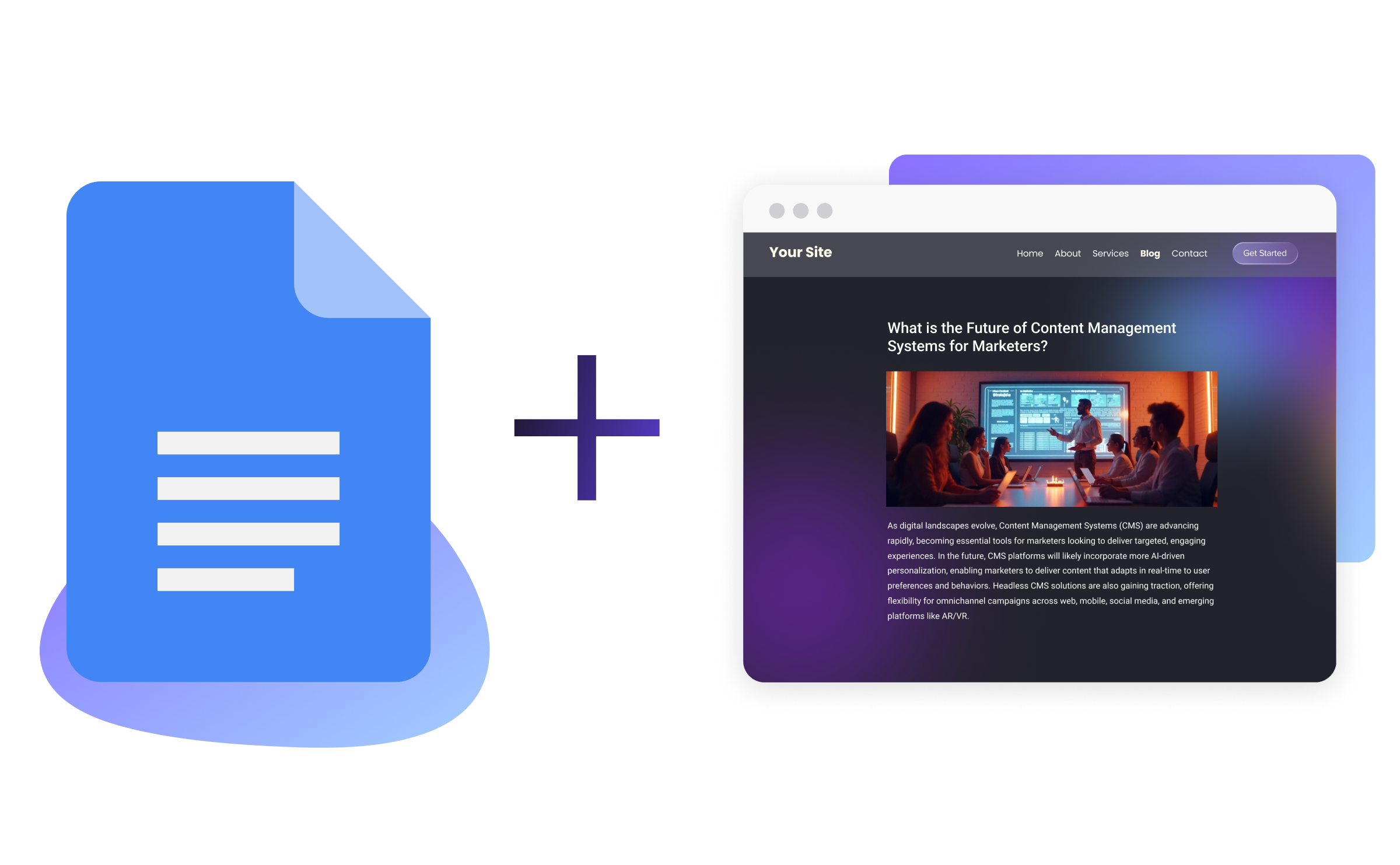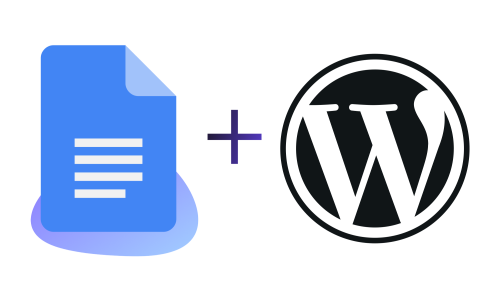5 Benefits of Updating Your Website Strategy with a Design Agency
Image

Think back to when you first launched your organization’s website. You spent weeks or months making crucial decisions about your digital strategy, deliberating everything from how to organize your website’s menu to where to place your logo on your homepage. At the end of that process, you were left with a fully-functioning digital hub that showcased your organization’s mission and purpose.
However, no matter how professional and engaging your site was when you first created it, every website eventually needs an upgrade. Whether you need to upgrade your content management system (CMS) or fully redesign your website because of outdated branding, there are plenty of reasons to update your website strategy.
But a website upgrade can be a major undertaking, and that’s where web design agencies come into play. These professional teams can assess your website and create an action plan to update your digital strategy and improve audience engagement.
In this article, I’ll review the common services that web design agencies offer, as well as the top benefits of seeking help from external professionals. Let’s get started.
Common Agency Services
You may be used to conducting regular website updates, such as updating plugins or refreshing your content. A website design agency will not only help you with these basic, quick fixes but also assess the lifecycle of your site as a whole to create a continuous improvement strategy.
Different agencies have different strategies for approaching continuous improvement. For instance, the web developers at Kanopi offer a website transition plan. This strategy provides organizations with a comprehensive plan for making incremental changes that add up to major improvements over time.
Here are the services that web design agencies like Kanopi offer as part of a continuous website improvement project:
Mapping out the user journey.
The user journey is the way visitors interact with your website and should be aligned with your organization’s unique mission and goals.
For example, a nonprofit website should be designed to lead supporters to a donation page. Charitable organizations should include nonprofit-specific site features such as donation buttons, volunteer sign-up forms, and advocacy information. These elements encourage visitors to learn more about the organization and get involved through donating, volunteering, or advocating.
A web design agency will take a data-driven, human-centered approach to analyzing your website’s user journey. This means they’ll assess your website metrics, such as average time on page and bounce rate, to determine which elements work for your website and which can be improved.
Recommending the right pathway for updating your site.
Next, your web design consultant will craft a game plan with recommended improvements. Depending on your needs, this blueprint might include suggestions for:
Upgrading to a new CMS, such as migrating from Drupal 7 to Drupal 9.
A full site rebuild, if necessary.
Strategic, incremental site improvements.
Switching to a new CMS entirely, such as WordPress or Drupal.
As you can see, these recommendations run the gamut from incremental changes to major site rebuilds. Your web consultant will review these recommendations with your team as well as improvement timelines and any associated costs.
Implementing updates and recommendations.
Lastly, your web design consultant will stick around to help implement their recommendations. They can see your organization through your website migration or stay on board in a support role to implement your continuous improvement strategy.
Over time, your web consultant will shift into a full support role. They will continue learning more about your organization’s audience and mission and take an iterative approach to continue enhancing your website. This means they’ll emphasize what’s working and eliminate what isn’t to optimize your website for user engagement.
It’s important to note that some web design agencies offer this full slate of services, while others offer a lighter or more hands-off approach. Review your organization’s goals and budget to determine which level of consultant works best for you.
5 Benefits of Working with a Web Design Agency
Web design agency services can be a major asset for your organization’s website, but they will come at a cost. Conduct a cost-benefit analysis by asking potential agencies for quotes and reviewing each agency’s unique benefits.
Whether you’re looking to revamp your business’s online presence or optimize your nonprofit’s digital strategy, working with a web design agency will allow you to:
1. Gain access to expert advice.
Your organization may not have a web design expert on staff to pursue a website overhaul. Working with an agency gives you immediate access to a professional who will take a fine-tooth comb to your website to give it the refresh it needs. They will offer reliable recommendations for everything from the right CMS platform for your organization to the search engine optimization best practices that will set your site apart from competitors.
Your web designer can also offer unbiased advice and can offer objective recommendations and improvements.
For instance, let’s say you’re redesigning your healthcare website. As Kanopi’s hospital web development guide points out, crafting a reputable, recognizable brand is critical for building trust among patients. Therefore, your marketing staff may feel a certain level of attachment to your website’s design and structure.
However, your web design consultant won’t have those same attachments and can offer an objective perspective on your site’s look and feel. A web agency can also step in and make incremental changes that align with your branding while still giving your website the upgrade it needs to be engaging and successful. This maintains trust among your audience while providing a fresh look and improved user experience.
2. Save your marketing team time.
Your marketing team is focused on a wide range of tasks, from connecting with audience members to building brand awareness. They may not have the time needed to take an in-depth look at your website and make necessary changes.
In contrast, a web design agency can focus on enhancing your website so that your marketing team can continue pursuing the vital daily activities that keep your outreach plans in motion.
3. Access long-term support and development.
Web design trends and best practices are constantly evolving. When you work with a web development team, you can keep a finger on the pulse of the web design world to ensure your site stays modern, relevant, and engaging.
Also, having a reliable web design partner gives your team a powerful resource to turn to whenever your website faces technical issues that require more complex solutions. The last thing you’d want to do is try to fix the issue in-house and accidentally make the problem worse. Having a web agency on hand can reduce the stress associated with resolving technical difficulties when your internal team may not have either the bandwidth or the expertise.
4. Give your website a unique look and feel.
Organizations that attempt to create their websites in-house tend to rely on the pre-programmed templates that their CMS offers, which can sometimes lead to generic or bland websites. On the other hand, a web design partner may have a greater capacity to create a unique, individualized website that suits your organization’s needs while setting you apart from similar organizations.
This gives your organization a sustainable, effective web presence that lasts for the long term, rather than a bare-bones site that constantly requires major updates.
5. Reflect your branding more effectively.
Your organization’s brand is one of the most important marketing and outreach tools you have at your disposal. Getting Attention’s branding strategy guide says it best: “Good branding increases customer loyalty, builds a positive reputation, and ensures people that you’re someone to be trusted.”
Consistent branding is critical for maintaining audience trust, whether you’re revamping your healthcare website or refreshing your nonprofit’s digital presence. As your digital marketing hub, your website should be branded with your organization’s logo, color palette, typography, and other unique elements that express your mission and purpose.
Your website agency will be able to incorporate your branding in a way that engages your audience, reflects the brand properly, and projects a professional public image while staying within the most current best practices.
Wrapping Up
Working with a web development and design agency is the right move for many organizations, even those with dedicated marketing or website management professionals on board. A web design consultant can help ensure that you’re taking advantage of the most effective website strategies and features to connect with your audience and spread your message.
Agencies like Kanopi prioritize taking care of the complete website lifecycle, from the ideation phase to support and ongoing iteration. The expertise and extensive support an agency like Kanopi provides in evaluating your website strategy is precisely why Pantheon has created an Agency Match tool — to streamline the process of choosing an ideal partner. The Agency Match tool provides you with a hand-picked customized shortlist from their extensive network of over 2,500 agency partners! Check it out here to learn more.
Parting words of wisdom in selecting the right agency: Be sure to thoroughly vet potential candidates to find the right fit with your organization. Then, consult with an agency that has experience working with similar organizations and a compatible working style. Good luck!


